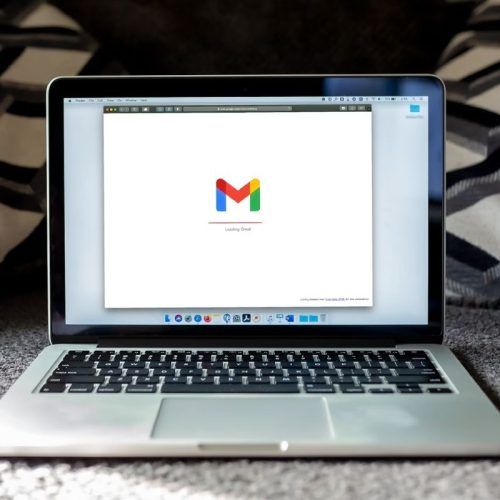With OpenAI’s SearchGPT entering the search engine market, the need to answer this crucial question arises more than ever – which is the best search engine?
For the last two decades, Google’s dominance over the market has given it a monopoly, destroying its biggest rivals and dictating the market terms for website publishers. With the US government yet to take a call on Google’s future, the need arises once again to look at all the alternatives and evaluate the best search engines at our disposal, including Google.
We have already looked at some of the best alternate search engines to Google and found a handful of services that can take care of our browsing needs. However, today, we are in a mood to find the best search engines considering everything.
Although SearchGPT is expected to be the next big deal in this segment, there are a couple of others that deliver various flavours of a general web search experience. There’s an AI-centric search engine called Perplexity that tries a different approach to the concept of a search engine. On the other hand, you have services like Brave Search and DuckDuckGo that intend to champion the cause of user data privacy over everything else.
Microsoft’s Bing has also emerged as an equally competent rival to Google, bringing with itself an entire ecosystem of apps and other crucial services. Bing was the first one to integrate its Copilot AI chatbot with the search experience.
Hence, join us as we explore and find out the best search engines at your disposal.

OpenAI x Reddit: Could The New Deal Make ChatGPT The King Of GenAI Chatbots?

Gemini vs ChatGPT: Can The Google AI Model Empower Bard To Beat OpenAI’s Chatbot?
Best search engines to try out in 2024
Jump To / Table of Contents

Web address: www.google.com
The World Wide Web is nothing without Google. From your smartphone to a gaming console and even a smart refrigerator, Google Search is everywhere.
Out of all the search engines listed here, Google’s indexing performance is superior by a notable margin. Be it a single sentence or an image, Google’s ability to find answers to your query is impeccable. With the addition of Gemini AI lately, Google now tries to answer a question directly while throwing up web links to the best-ranking websites. On smartphones and tablets, Gemini’s ability to access the most relevant information from hundreds of websites negates the need for manually typing your query.
For those having smart home ecosystems, Google provides a highly evolved voice interface for gaining control over individual appliances and devices via compatible speakers.
Google’s Workspace ecosystem, consisting of Docs, Gmail, Photos, Maps, Sheets and more offers convenient and free access for productivity. YouTube adds on as a vast video resource for Google search queries, directly integrated into the search pages. Google also recommends using the Chrome browser to experience it in the best of ways.
On the whole, there’s nothing like Google in today’s world.
(Image Credit: Google)

Web address: www.bing.com
Bing is the only search engine in pursuit of challenging Google’s market dominance. Backed by Microsoft, it is the only search engine ecosystem that offers an entire suite of web solutions to users.
Offered as the default search on Microsoft Edge, Bing offers relevant answers to the most complex and demanding queries, including website links, images, Bing videos and shortcuts to shopping links. However, the integration with Microsoft’s Copilot, which is a Generative AI chatbot based on OpenAI’s GPT-4 model, makes it one of the smartest, if not the smartest, search engines to rely on.
The Bing homepage also curates news articles and videos from across the web, along with weather and traffic details, to provide a one-stop solution for all your web needs. You will also find integration with Microsoft’s Office suite of work apps, which is preferred by most users for their business. The Edge browser neatly integrates Bing and Copilot in most of its functions.
If you have had enough of Google, Bing is your best bet as an alternative.
(Image Credits: Bing)

Web address: www.perplexity.ai
Perplexity tries to reimagine the search engine as we know it. Instead of throwing hundreds of web links at you to manually sort out the best website in response to your query, Perplexity uses AI to answer your question directly.
Using a Large Language Model (LLM), Perplexity searches the web for answers and compiles an answer in a language that humans can understand. Every answer is backed by the reference web links that it uses to compose the question. Hence, whether you are seeking a recipe for a banana walnut cake or interested in finding useful life advice, Perplexity gives you the answer directly instead of making you do the manual labour of choosing which website’s answer works best for you.
Unlike Google and Bing, Perplexity is a new search engine and lacks an ecosystem of supporting apps. Additionally, the free version relies on OpenAI’s GPT-3 model and you need to pay for the Premium subscription plan (worth USD 20 or HKD 156 approximately per month) to gain access to GPT-4o, Claude 3, DALL E, Playground AI and other advanced AI models.
(Image Credits: Perplexity)

Web address: search.brave.com
Privacy is a sore point for most search engines – not for Brave Search.
Unlike Google and Bing, Brave Search’s sole intention is to provide a privacy-focused web search experience. It does not sell the user browsing data to advertisers and hence, no website or vendor gets to know who you are on the web. There’s no profiling done. However, the free model still shows advertisements on the search pages, which is a necessary step to fund the search engine.
Despite being obsessed with privacy, Brave Search’s performance is faster than that of Google and most other privacy-centric search engines. The web links are shown from various social media platforms like X, Reddit, Instagram and more, all stacked neatly in different sections. With the addition of a Generative AI-based chatbot, Brave can also answer complex queries in conversational language on top of the web links.
To further its cause of a privacy-centric web search experience, Brave Search recommends downloading the Brave browser for free.
(Image Credits: Brave)

Web address: www.duckduckgo.com
DuckDuckGo is another search engine that you can count on to keep your interests and your online adventures private. Similar to Brave Search, it prioritises keeping your web activity private and secure from the prying eyes of advertisers. Thus, you aren’t bombarded with advertisements as you witness on Google and Bing, even while searching for images or videos.
DuckDuckGo’s general search indexing performance isn’t on par with Brave or Google but you end up getting references to websites and sources of repute. You can use the Assist option (located just under the search bar) to get a quick answer to your query, similar to Google’s AI Search Overview. You can even switch to the Chat window to access a free AI chatbot, which lets you choose from various AI models like GPT-4o mini, Claude 3, Haiku, Llama 3.1 and more. Do note that the information database isn’t updated to the latest versions, which is why you could see incorrect responses.
DuckDuckGo also offers a free web browser for PC users who seek to uphold the matter of privacy.
(Image Credits: DuckDuckGo)

Web address: www.yahoo.com
Yahoo! Search may no longer possess the glamour it once used to enjoy but deep down, it remains a potent search engine for regulars of the World Wide Web.
Survived mostly by Yahoo! Mail, which is still one of the best email clients in the market today, Yahoo! Search dishes out a simplistic take on a search engine that solely deals with the business of grabbing links and other basic information from across the web. However, Yahoo! struggles when it comes to search speeds, indexing and on the matter of smart features. Unlike most other names mentioned here, it doesn’t have a dedicated generative AI chatbot for helping out with complex queries. It even lacks a content aggregating homepage like Bing.
Yahoo! then is more suited for those who either live in nostalgia or want to stay away from Google’s influence.
(Image Credits: Yahoo!)

Web address: https://chatgpt.com/search
SearchGPT is another upcoming search engine that will compete with Perplexity. Unlike the latter though, SearchGPT will make use of the latest OpenAI AI models and is likely to be integrated with ChatGPT in the future.
SearchGPT will scan the world wide web to find relevant web links to your search keywords and try to curate an answer directly. Similar to Perplexity, it will quote the source links and may also recommend further links to help with information. SearchGPT will also show images, video links, graphs, widgets and more to make your search experience as helpful as possible.
Before you start to get uneasy, SearchGPT is undergoing a testing phase and is available to select beta testers who signed up early. OpenAI is expected to release it gradually for members across the world.
(Image Credits: OpenAI)

SearchGPT vs Google: Is It Time To Switch Your Search Engine?

Google Gemini AI Overview Fiasco: Can We Trust AI-Powered Responses Anymore?
(Hero and Featured Image Credits: Courtesy Growtika via Unsplash)
Frequently Asked Questions (FAQs)
Bing is the best search engine other than Google for research.
Brave Search is the best search engine for privacy.












